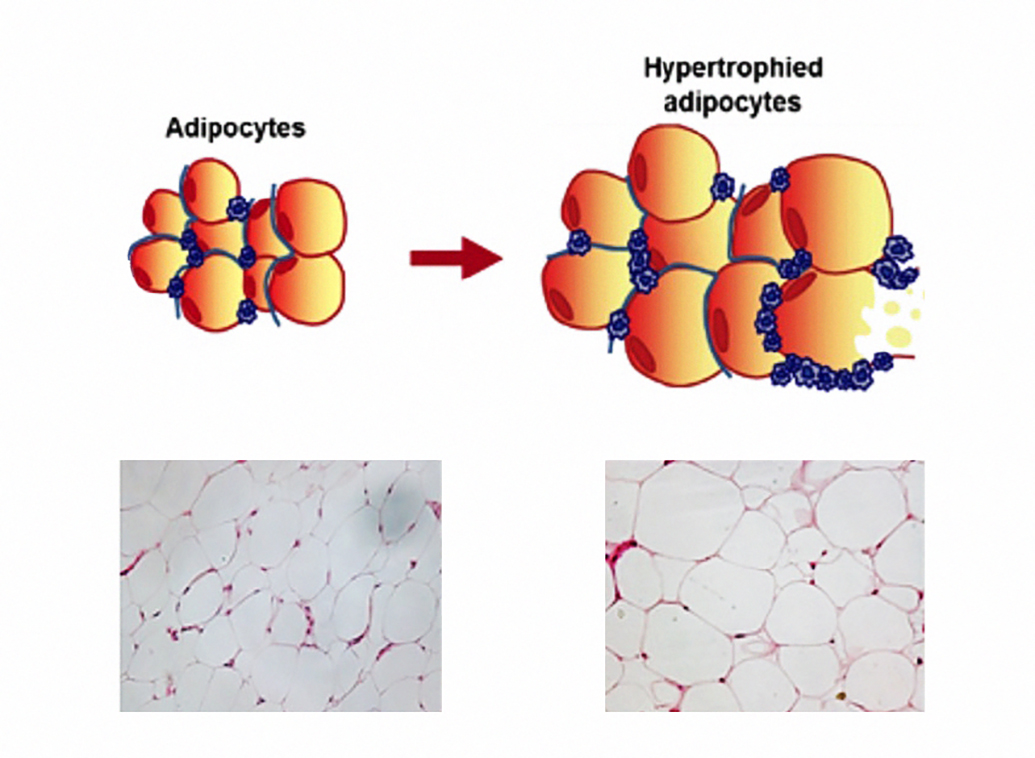Metabesity
ABOUT
The present group addresses the study of metabolic disorders that stand behind cancer, by investigating metabolic pathways, hormonal and nutritional cues, and preventive/ therapeutic novel approaches. Metabolic diseases incidence is increasing worldwide, being attributed to lifestyle features of XXI century, such as environmental factors (food components, stress, organic pollutants). These conditions, including obesity, diabetes, lipodystrophies and heart failure, result in increased morbidity and mortality rates, and contribute to high medical costs. Insulin resistance, glucose intolerance, hypertension and dyslipidemia are often seen as major contributors to chronic metabolic disturbances. Nevertheless, the ethiopathogenesis of these conditions is highly complex, partly due to the multiple and varied partakers.
The major outcome of our study is to identify putative disease causes, disease progression mechanisms and preventive/therapeutic strategies against these endocrine-related disorders. We currently live in a toxic food environment that may induce overeating, generating obesity and metabolic diseases. Nutrition research helps improve quality of life, creating knowledge not only to treat, but also prevent illness. Our expertise in both pedagogical and research nutrition domains, enables us to fulfill this crucial point, by developing and validating food and nutritional strategies that control the wide variety of metabolic syndrome-associated conditions.
RESEARCH
The present team has a large research tradition in different R&D units located at FMUP, on basic and clinical research regarding metabolic disease. Interesting data has been obtained regarding:
- diet-induced metabolic syndrome (fructose ingestion or high fat diet) in animal models;
- the role of transmembrane transporters as vehicles for external-internal environment interaction (e.g. glucose, butyrate, diet polyphenols, bile acids, drugs, folic acid) in carcinoma cells and in gestational diabetes conditions
- organochlorine pesticide (POPs) detection in morbid obese patients adipose tissue; their effect during the periconceptional period on offsprings metabolic phenotype; epigenetic basis; offspring susceptibility for obesity and comorbilities
- Angiogenic paradox in diabetes in animal models; their modulation by diet polyphenols; Effect of Hyperbaric oxygen therapy in patient diabetic foot ulcers
- Lipodystrophies characterization as adipose metabolism dysfunction; results corroboration using adipocyte cultures and animal models
- new treatment approaches in patients with obstructive sleep apnea refractory to continuous positive airway pressure
- cohort of aortic stenosis patients stratified by diagnostic imaging and therapeutic strategies.

Team
Ongoing Projects
Proponent: Instituto de Investigação e Inovação em Saúde - Universidade do Porto
Sponsor: FCT - Fundação para a Ciência e a Tecnologia
From 03-FEB-25 to 02-FEB-27
Proponent: Instituto de Investigação e Inovação em Saúde - Universidade do Porto
Sponsor: FCT - Fundação para a Ciência e a Tecnologia
From 01-JUN-25 to 30-NOV-26


